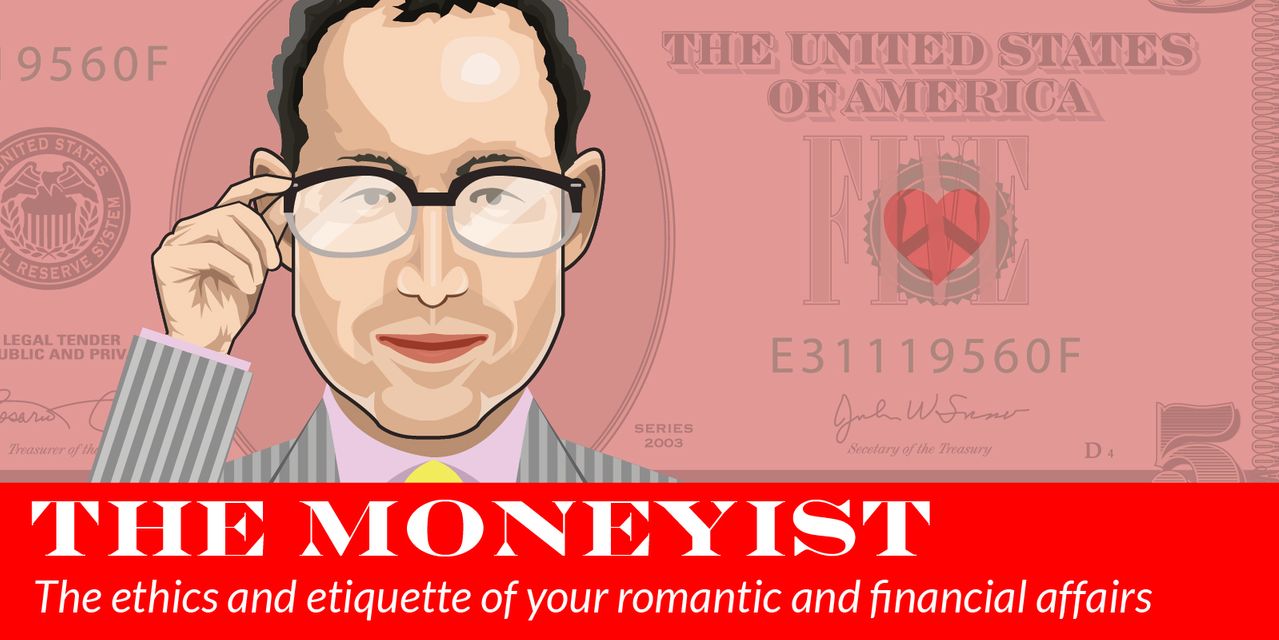
Dear Quentin,
My wife is at the director level for one of the most powerful healthcare companies in the world, so she’s been bringing home total compensation north of $500,000 for the last several years.
However, while she’s incredible at making money and always has been, she doesn’t understand it very well and has no idea how to account for it. You should have seen her 401(k) allocation back when we were dating. Even worse, her spending has gotten completely out of control, and she won’t listen to me when I try to reel her back in.
She has a desire to retire early — her company tends to push executives out the door in their 50s, by the way — and live lavishly thereafter, but we’ll never be able to achieve those goals if she keeps lighting money on fire.
While I own and operate a successful small business, it can’t be a primary source of income living the way we do. It works best as a glorified tax shelter. We have two children, ages 7 and 5, and my primary focus is giving them the best private education we can afford until graduation.
Fortunately, I manage our money well because we have zero debt outside of our mortgage and pay credit-card balances in full every month. We also max out retirement savings and my wife’s employee stock-purchase plan, but we’re not saving or investing nearly as much as we should because she spends $1,500 at the shopping mall almost as often as I spend $150 at the grocery store. “I make a lot of money, and deserve to buy what I want,” she tells me.
How can I get her to understand that every dollar she spends today robs us of $2 or $3 down the road to live the life she envisions for herself once our kids are grown and out of the house?
Broke Rich Man/Rich Broke Man
Dear Rich/Broke,
This game of cat and mouse needs to stop, and the best way to do that is to bring in a third party to ask you both what your goals and dreams are for the future, talk about your relationships with money and with each other, and then deliver the cold, hard facts. What does money mean to you, and what does it mean to your wife?
To your wife, it could mean a sense of freedom — freedom to go shopping and buy whatever she pleases. But that reward wears off, and she needs to do it all over again to get the same effect. There are other kinds of freedom: Freedom from worry, freedom to retire at 50. That’s 1/3 on that freedom scale. Not a great result.
Treat this as an information-gathering exercise rather than one of holding one person responsible. Your wife works hard and she shops hard. Maybe the answer is to ease off of both of those things, take a breath and downsize to a more modest existence where you don’t have to keep this reward-focused show on the road.
The Grand Canyon
I asked a couple of CPAs for their take, and here is what they said. Janet Lee Krochman, president of Janet Lee Krochman, A Professional Corporation in Costa Mesa, Calif., suggests couples counseling to find common ground. “It would seem that they are on opposite sides of the Grand Canyon presently,” she says.
She also recommends a “retirement budget” that would likely show the income your wife will need upon retirement to keep her in the lifestyle to which she would like to become accustomed after she gives up work. This income will probably be little different from the income she currently enjoys, Lee Krochman adds.
Add private-school education and your college budget to the list. “Putting all of those financial constraints into a spreadsheet, with the estimated income that will be generated by the current retirement savings, may be just the wake-up call that she needs to see that you cannot spend the same dollar twice,” she says.
Prioritizing your passions
Divide your life into current passions, current necessities, and retirement goals. “I always tell clients that if they work hard, they deserve to reward themselves. But that does not mean that they can reward themselves with everything,” says Robert Seltzer, founder of Seltzer Business Management in Los Angeles, Calif.
Reward means different things to different people, of course. “For example, many people would think that I am crazy because my mountain bike retailed for about $10,000,” he says. “However, I am not a car nut, and typically keep mine for 10 years. My point is that people should follow their passions, but not spend blindly.”
That requires having an open, honest discussion about cash flow, income — your business, as you said, acts more a glorified tax shelter — and another kind of reward, one that you can look forward to and take enjoyment in working toward, and does not require dropping $1,500 at the mall: your life in retirement.
Signs of a shopping addiction
People who have addictive tendencies may also be prone to anxiety and depression or, on the other side of the scale, be extroverts who seek social stimulation and other exciting sensations, according to a group of researchers at the University of Bergen who studied the topic.
They identified seven telltale signs of a shopping addiction: 1. You think about buying stuff all the time. 2. You shop in order to change your mood. 3. It negatively affects your daily responsibilities. 4. You need to shop more to get the same buzz. 5. You can’t stop. 6. It makes you feel bad. 7. Shopping has impaired your well-being.
Here’s the scary part: Four out of those seven may suggest your wife, or anyone reading this, has a shopping addiction. My point is: It’s not just the spending. There are likely a host of issues related to your wife’s job, your marriage and relationship, and all the burdens and/or responsibilities that we silently shoulder every single day.
What appears to be a challenge now may turn out to be the best thing that ever happened to you. Discovering what is behind this disconnect in your marriage and finances may make your marriage happier and healthier. Adversity, especially the kind we are responsible for bringing upon ourselves, happens for a reason.
It is an opportunity for you both to learn and grow.
You can email The Moneyist with any financial and ethical questions related to coronavirus at [email protected], and follow Quentin Fottrell on Twitter.
By emailing your questions, you agree to having them published anonymously on MarketWatch. By submitting your story to Dow Jones & Company, the publisher of MarketWatch, you understand and agree that we may use your story, or versions of it, in all media and platforms, including via third parties.
Check out the Moneyist private Facebook FB, -1.32% group, where we look for answers to life’s thorniest money issues. Readers write in to me with all sorts of dilemmas. Post your questions, tell me what you want to know more about, or weigh in on the latest Moneyist columns.
More from Quentin Fottrell:










